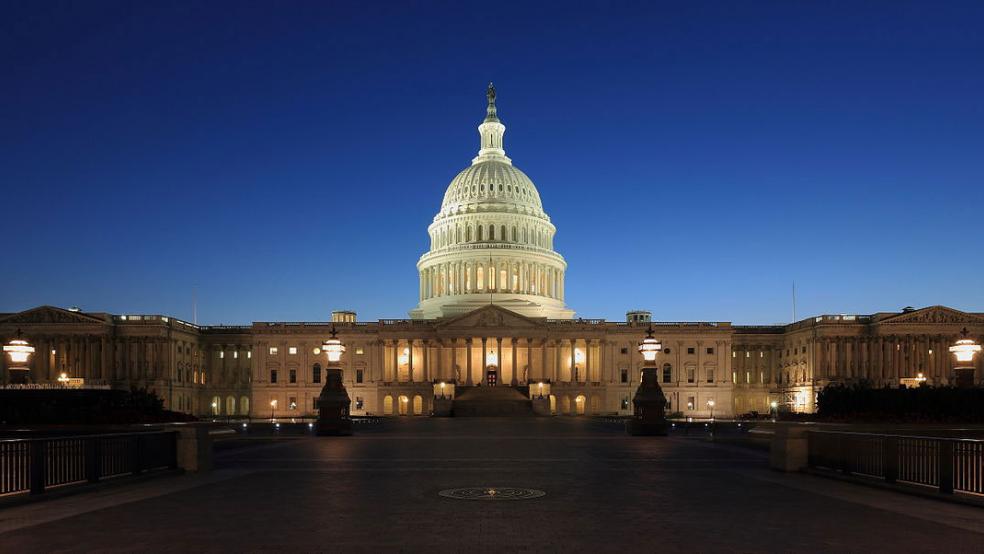Even as annual deficits climb back toward the $1 trillion mark, “the deficit fear-factor” continues to recede in Washington, says Bloomberg’s Steve Matthews, reporting on a debate organized this week by the National Association for Business Economics. One big reason for the lack of concern is that rising deficits haven’t produced obvious problems for the economy, despite years of warnings from deficit hawks that they would.
Conservatives and moderate Democrats have toed the line on fiscal discipline in large part because they have been convinced that interest rates would soar and damage the economy if the government produced large deficits, Matthews says. But contrary to expectations, interest rates have fallen even as deficits have moved sharply higher in recent years, with long-term Treasury yields now sitting near record lows.
One result is that more Democrats are rejecting the idea that the U.S can’t afford ambitious social welfare programs such as Medicare for All and are turning to Modern Monetary Theory, the economic school of thought that says that government spending is constrained by inflation, not revenue. Armed with some variation of that idea, some Democrats are focusing more on progressive policy ideas and less on how to pay for them, potentially laying the groundwork for larger deficits in the future.
“You can see it politically, it’s already happening,” Julia Cornado, a former Federal Reserve economist who runs her own research shop, told Matthews. “The progressive camp is frustrated, they have had it, and are saying ‘You guys are wrong, you have been wrong about everything and now it’s going to be our turn.’”
Most mainstream economists remain unconvinced, however. Cristina Romer, chair of the Council of Economic Advisers under President Obama, warned that there could still be a price to pay for rising deficits. “The idea that ‘let’s have a party now’ and not even be thinking about how much the fiscal situation is predicted to deteriorate because of demographics and health care and long-run trends, is just really deeply irresponsible,” she said.




